
Let partners at some of the country's biggest firms take care of your holiday reading list
Put down your schoolbook and pick up an eggnog: the holiday season is here! But for you, the high achiever, there's that persistent niggle at the back of your mind – you feel you ought to be doing something more productive than watching the Home Alone saga horizontally from the couch as you work your way through a chocolate reindeer.
So to help you relax and assuage the guilt that you’re neglecting your career, we’ve curated a holiday reading list as recommended by BigLaw’s top dogs. And here’s the most relaxing part: none of these books are about the law.
Get some perspective…
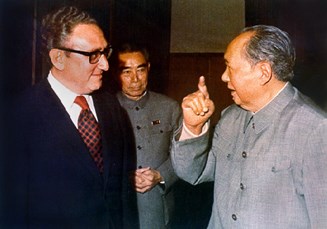 World Order by Henry Kissinger – Recommended by Bill Dougherty, Simpson Thacher & Bartlett chairman
World Order by Henry Kissinger – Recommended by Bill Dougherty, Simpson Thacher & Bartlett chairman
In his 17th book, Nixon's wily Secretary of State uses four historic systems of world order to outline why we’re struggling so much for international cooperation in 2017. Self-labeled ‘history buff’ Bill Dougherty tells us: “Kissinger does a great job of putting recent turbulence in the world in a historical context. For law students, maintaining a bit of a global perspective as they embark on their careers is important, particularly in today’s world with short-duration news bursts. Taking time to step back and view events occurring today with the perspective of a few hundred years in history is helpful, and all too rare in today’s world.”
 Moneyball: The Art of Winning an Unfair Game by Michael L. Lewis –Recommended by Joe Shenker, Sullivan & Cromwell chairman
Moneyball: The Art of Winning an Unfair Game by Michael L. Lewis –Recommended by Joe Shenker, Sullivan & Cromwell chairman
You may have seen the 2011 film starring Brad Pitt, but before it hit Hollywood, the story of the Oakland Athletics baseball team could be found on the bookshelf. And Joe Shenker thinks there’s plenty to be learned from it: “Lewis describes how player evaluation had operated one way since time immemorial and then one person gave it a fresh look and developed an entirely new and successful approach that turned scouting methodology on its head. An important trait for any lawyer is to think outside the box: not to take things you see at face value but to analyze, be skeptical and come to your own conclusion. This is a great example of this --- and everyone likes baseball anyway!" And what’s more, Shenker says Lewis’ writing style can lend a lot to new lawyers: "Michael Lewis has a terrific ability to distill complicated concepts into very readable prose, whether the topic is the financial crisis, high frequency trading or football. He’s a writer from whom a lawyer can learn, because the most effective contracts, term sheets. memoranda of law and briefs require the same skill: converting often complicated concepts into simple, understandable and persuasive prose.”
The Hillbilly Elegy by J.D. Vance – Recommended by Ken Doran, Gibson Dunn chairman and managing partner
J.D. Vance’s memoir recounts his unlikely path from an impoverished upbringing in rural Ohio to Yale Law School. Ken Doran tells us: “While I do not agree with all of his observations, Vance offers a compelling look at the social and economic challenges of growing up in a poor rural community, and the struggle to escape the shackles of poverty and all that comes with it.”
Reading people…
All the King’s Men by Robert Penn Warren – Recommended by Alan Klinger, Stroock, Stroock & Lavan co-managing partner
Warren’s political novel traces the life of fictional governor Willie Stark. Its 1946 publication makes this the oldest-but-one book on our list, but for Alan Klinger its lessons are ever-relevant: “It is a great study of human behavior of how people respond to professional and personal challenges. If you think about it, lawyers often have to act as amateur psychologists in terms of addressing the needs of their clients, colleagues, and adversaries. Understanding human nature is an important part of succeeding as a lawyer. It’s not just your legal skills, it’s how you interact and navigate with different groups of people. Warren gives tremendous insight into that.”
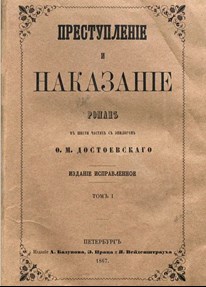 Crime and Punishment by Fyodor Dostoyevsky – Recommended by Kim Koopersmith, Akin Gump chairperson
Crime and Punishment by Fyodor Dostoyevsky – Recommended by Kim Koopersmith, Akin Gump chairperson
This is another one to sharpen your amateur psychology – and with a 150-year legacy, the oldest book on our list. This Russian classic is on the fatter side with 200,000 plus words, but well worth setting aside time for according the Kim Koopersmith: “It's such a wonderful story, but it's also an incredible view into the psyche of people that I think all law students would really appreciate. It certainly doesn't hurt that the writing is amazing!”
How to Win Friends and Influence People by Dale Carnegie – Recommended by Bill Wiltshire, managing partner of Harris, Wiltshire & Grannis
We leave murder behind now and swing to the other extreme of human relations, with Dale Carnegie's huge bestseller, How to Win Friends and Influence People. Bill Wiltshire, managing partner of DC boutique Harris, Wiltshire & Grannis, considers "being able to communicate with people, to identify and meet their needs, is what being a lawyer is all about."
All for one and one for all…
Leadership Jazz by Max De Pree – Recommended by Tom Shropshire, Linklaters global US practice head
“This is a good book for anyone to read because it’s about how to get the best out of people you work with,” Tom Shropshire tells us. In fact, Shropshire’s own coach recommended it to him when he became head of Linklaters’ US practice. If you see yourself as a leader, this is one for you too. “The whole premise of the book is that jazz music is not something that’s written, and people don’t follow a form, but it can be beautiful when a leader gets people to achieve their best in different ways. I think it’s good for people going to work more collaboratively with a team than they’ve had to in the past, to get a sense of how you might approach that.”
Smart Collaboration by Heidi K. Gardner – Recommended by Jami Wintz McKeon, Morgan Lewis chair
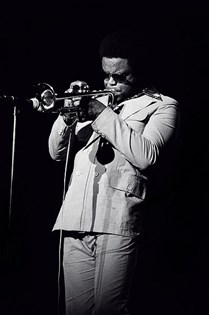
Harvard professor and former McKinsey consultant Heidi K. Gardner wrote a business book that was so convincing, Morgan Lewis decided to give it out to all its partners. Chair Jami Wintz McKeon explains why: “It makes the case that collaborating and working together is not just a kind or nice thing to do, but really good business. It demonstrates statistically that those who emphasize and reward collaboration end up more successful as an organization and as an individual. It’s astonishing to me that many great, successful firms still promote an individual over the group system. They have a competitive system, a power system, and are focused more on exalting the individual rather than the group. What ‘Smart Collaboration’ does is demonstrate scientifically and statistically what Morgan Lewis has demonstrated: if you create an environment where people are motivated and rewarded for collaboration with one another, then they will be more successful as individuals, more satisfied as lawyers, and the firm will do better.”
 The Boys in the Boat by Daniel James Brown –Tim Powers, Haynes and Boone managing partner
The Boys in the Boat by Daniel James Brown –Tim Powers, Haynes and Boone managing partner
This is another one celebrating team spirit. Brown tells the story of the US rowing team’s victory at the 1936 Olympics in Nazi Germany, and for Tim Powers it’s “an incredible example of teamwork and tenaciousness. For a lawyer to survive they have to be resilient and tenacious.” Powers tells us it's a must for any Haynes and Boone attorney, “to understand our teamwork culture and how I think about things. Our lawyers quickly learn that 'it’s all about the boat.'"
Know the business…
Great by Choice by Jim C. Collins and Morten T. Hansen – Recommended by Guy Halgren, Sheppard Mullin chairman
“Collins and Hansen extract important lessons from the real world that we use every day in our business.” Particularly noteworthy ideas for Guy Halgren are “‘the 20-mile march,’ which has to do with a consistent approach in business and growth, and the concept ‘bullets before cannonballs’ where you focus in a very targeted way on an issue and refine your approach before going all in with a cannonball.” Halgren also recommends Good To Great – another by Jim C. Collins: “The phrase ‘good to great’ is something we use every day around Sheppard Mullin – that’s our drive in every area: we want to be great.”
Legacy by James Kerr – Recommended by Richard Trobman, Latham & Watkins vice chair
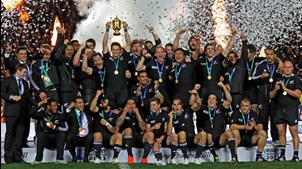 Kerr’s account of New Zealand’s legendary All Blacks rugby team looks at their success and how it can be applied elsewhere. A quote from former player Ali Williams – “nobody owns the jersey, you're holding it for the next generation” – stood out for Richard Trobman: “That concept of wanting to transition your success is very powerful. Law schools don't really teach you about the law as a business, and while it's not all relevant there are a lot of lessons to be learned in that book.”
Kerr’s account of New Zealand’s legendary All Blacks rugby team looks at their success and how it can be applied elsewhere. A quote from former player Ali Williams – “nobody owns the jersey, you're holding it for the next generation” – stood out for Richard Trobman: “That concept of wanting to transition your success is very powerful. Law schools don't really teach you about the law as a business, and while it's not all relevant there are a lot of lessons to be learned in that book.”
True Professionalism by David Maister – Recommended by Tom Shropshire, Linklaters global US practice head
Tom Shropshire also recommends this one for keeping clients happy: “I read this when just starting out as a lawyer. It was a great book just to set one’s mind straight about how to be a client-oriented and client-service facing lawyer. That was really quite helpful for me.”
Fooling Some of the People All the Time by David Einhorn – Recommended by David Botter, Akin Gump hiring partner
David Botter’s pick is a financial thriller (yep, that’s a real genre), looking at Wall Street and the 2008 financial crisis. Given the monumental impact the crash had around the world on every industry, aspiring attorneys (particularly in the corporate world) had better be clued up on it. And David Einhorn – one of the highest-earning hedge fund managers in the world – probably knows what he’s talking about.
And finally...
To Kill a Mockingbird by Harper Lee – Recommended by Phil Inglima, Crowell & Moring chair
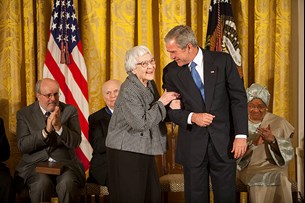 No respectable book list would be complete without it. And OK, it’s not entirely law-free like we promised, given that Atticus Finch is the most famous fictional lawyer of all time (no offense Ally McBeal). But the heart of To Kill a Mockingbird doesn’t lie in the law. As Phil Inglima explains, “it’s about coming of age, growing up, awakening and learning. It’s about justice, both the pursuit of justice, and how elusive justice can be. And I think all young lawyers really need to have an appetite for justice. It doesn't matter which practice area you want to pursue, if you don’t feel some burn in you to be advancing justice then you have a hollow place inside yourself. It’s also a book about persistence and persevering. Tragically the pursuit of justice is not immediately rewarded and that results in a great injustice. But in Atticus and Scout you see commitment to persevering and not letting up on what you believe in.” Of all the books on this list, we hazard a guess this is one you may have already read, but this is one worth revisiting: “It’s perhaps my favorite book. I certainly reread it whenever I can.”
No respectable book list would be complete without it. And OK, it’s not entirely law-free like we promised, given that Atticus Finch is the most famous fictional lawyer of all time (no offense Ally McBeal). But the heart of To Kill a Mockingbird doesn’t lie in the law. As Phil Inglima explains, “it’s about coming of age, growing up, awakening and learning. It’s about justice, both the pursuit of justice, and how elusive justice can be. And I think all young lawyers really need to have an appetite for justice. It doesn't matter which practice area you want to pursue, if you don’t feel some burn in you to be advancing justice then you have a hollow place inside yourself. It’s also a book about persistence and persevering. Tragically the pursuit of justice is not immediately rewarded and that results in a great injustice. But in Atticus and Scout you see commitment to persevering and not letting up on what you believe in.” Of all the books on this list, we hazard a guess this is one you may have already read, but this is one worth revisiting: “It’s perhaps my favorite book. I certainly reread it whenever I can.”